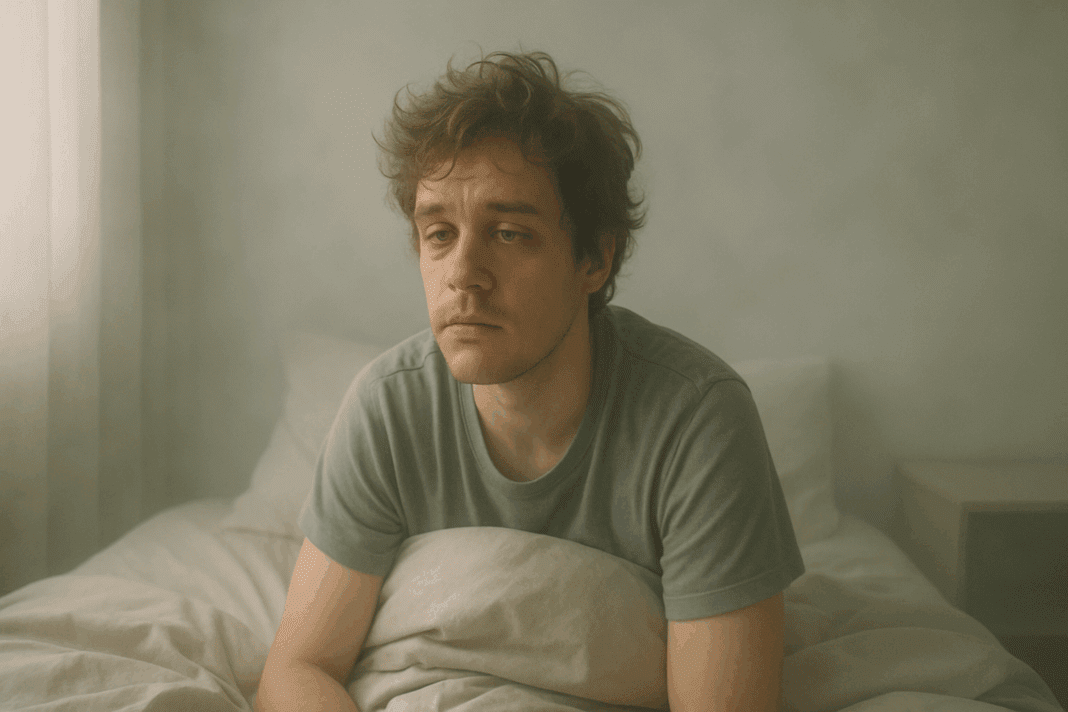Feeling unusually tired can often seem like a temporary inconvenience, but for some, the shift is both sudden and extreme, raising questions and concern. Why am I sleeping too much all of a sudden? This question reflects a growing curiosity and worry among those who find themselves drifting into sleep far more often than usual, sometimes during the day or at inappropriate times. While sleep is vital for bodily repair and cognitive function, excessive sleep can be a warning sign of underlying issues. When a sudden increase in sleep patterns disrupts daily activities or coincides with other symptoms, it’s time to explore what your body might be trying to communicate.
You may also like: 12 Critical Signs to Watch For: How to Know If You Have Sleep Insomnia and What to Do Next
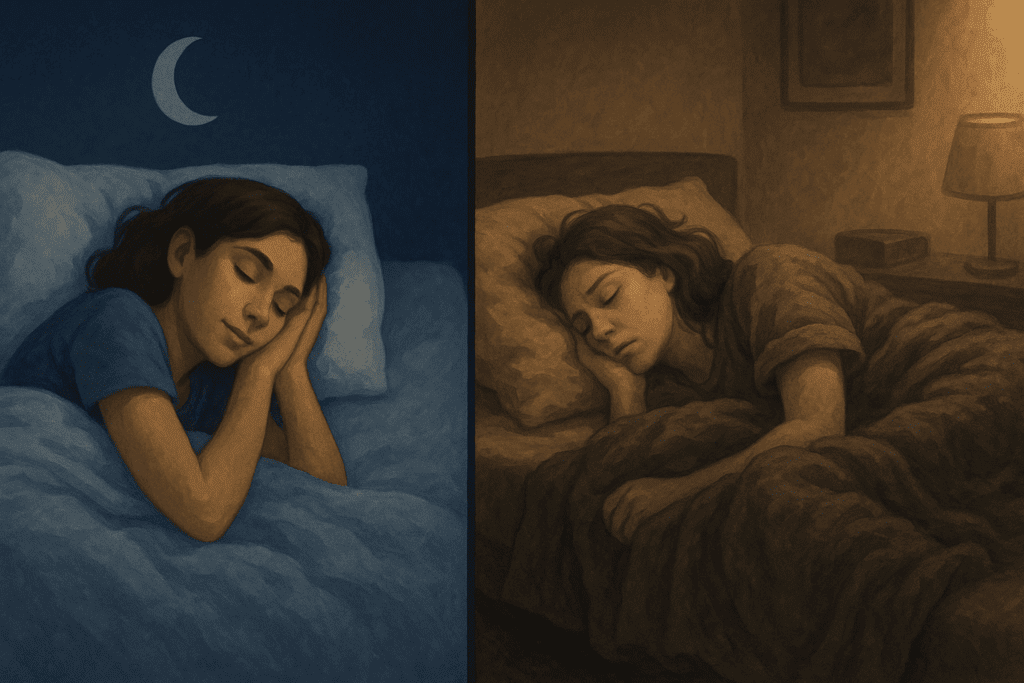
Understanding What Constitutes Excessive Sleep
Before diving into the causes and solutions, it’s essential to define what qualifies as excessive sleep. Most adults require between seven and nine hours of sleep per night to function optimally. Sleeping beyond this range occasionally isn’t necessarily problematic, especially after periods of stress, illness, or intense physical exertion. However, consistently needing more than nine or ten hours of sleep or experiencing extreme daytime sleepiness may point to a more concerning issue.
Medical professionals often use the term “hypersomnia” to describe this state. To define hypersomnia accurately, it is characterized by recurrent episodes of excessive daytime sleepiness or prolonged nighttime sleep that significantly impairs daytime functioning. While some might dismiss sleeping too much as laziness or a personal flaw, hypersomnia symptoms suggest a complex interplay between physical, neurological, and psychological factors.
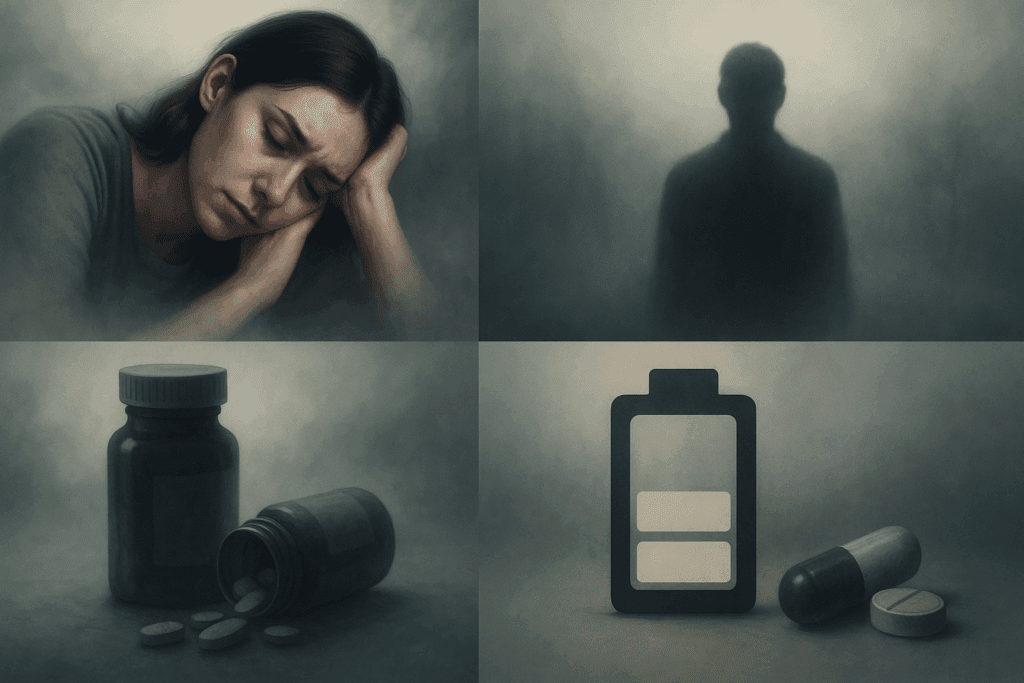
Why Am I Sleeping Too Much All of a Sudden: Uncovering the Root Causes
There are multiple reasons why someone might ask, “Why am I sleeping too much all of a sudden?” Sudden fatigue could arise from a host of medical and lifestyle factors. Physical health problems such as anemia, hypothyroidism, diabetes, and chronic infections can cause excessive sleepiness. Each of these conditions drains the body’s energy reserves, prompting increased sleep as a compensatory response. Mental health issues, especially depression and anxiety, are also notorious for disturbing sleep regulation, often leading to both insomnia and hypersomnia.
In addition, medication side effects are frequently overlooked. Antidepressants, antihistamines, blood pressure medications, and even over-the-counter sleep aids can induce fatigue or daytime somnolence. This leads to falling asleep during the day without intending to. If you’ve recently started a new medication or adjusted your dosage, it’s worth considering this as a contributing factor. Moreover, nutritional deficiencies like low levels of vitamin D, B12, or iron may also lead to excessive sleepiness and should not be ignored.
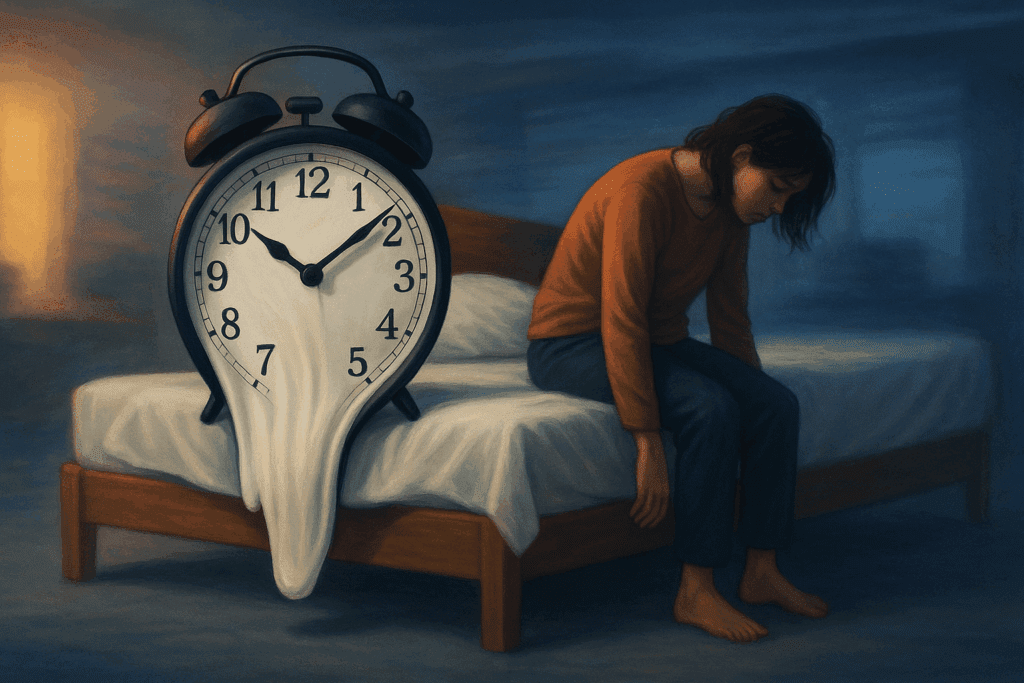
Can You Sleep Too Much? Understanding the Physical Consequences
Many people assume that more sleep is always better. However, science shows that excessive sleep can have consequences just as serious as too little sleep. Can you sleep too much? The answer is unequivocally yes. Prolonged periods of inactivity and sleep can disrupt your body’s circadian rhythm, leading to grogginess and mental fog, also known as sleep inertia. This impairs cognitive functions such as decision-making, memory recall, and attention span.
Excessive sleep has also been linked to increased risk for certain chronic diseases. Studies have shown a correlation between sleeping too much and conditions like obesity, cardiovascular disease, and even early mortality. This suggests that sleeping all day isn’t simply a benign habit—it may be a red flag. The metabolic and hormonal changes that occur with hypersomnia symptoms may trigger inflammation or impair insulin sensitivity, laying the groundwork for more severe conditions over time.

Daytime Somnolence and the Disruption of Wakeful Hours
Experiencing frequent episodes of daytime somnolence can be both disorienting and disruptive. People who once led active, productive lives may find themselves unable to resist the pull of sleep even in the middle of essential tasks. The term “daytime somnolence” describes this unrelenting sleepiness and is often accompanied by low energy, decreased alertness, and reduced performance in both academic and professional settings.
Unlike mere tiredness, which can often be resolved with a good night’s rest, excessive daytime sleepiness typically lingers regardless of how many hours one sleeps. This is where it becomes crucial to distinguish between temporary fatigue and a persistent pattern of dysfunction. Those who suffer from this condition may begin to isolate themselves socially, experience mood swings, or encounter declining productivity. If left unaddressed, this pattern of behavior can evolve into a debilitating cycle.
The Hypersomnia Definition and Its Diagnostic Significance
It is vital to grasp the clinical context of the hypersomnia definition to appreciate how medical professionals approach the condition. Hypersomnia, as classified by sleep specialists, refers not only to sleeping more than ten hours a night but also includes the inability to stay awake and alert during the day. It is distinct from narcolepsy, though the two can present similarly. Unlike narcolepsy, hypersomnia lacks the cataplexy, or sudden loss of muscle control, that characterizes the former.
To diagnose hypersomnia, doctors often perform sleep studies or use tools such as the Epworth Sleepiness Scale to assess the severity of excessive daytime sleepiness. Blood tests might be ordered to identify any hormonal or nutritional imbalances contributing to the condition. In some cases, overnight polysomnography is employed to rule out other disorders like sleep apnea or restless leg syndrome, both of which can lead to fragmented sleep and resultant fatigue.
Why Am I Sleeping Too Much All of a Sudden? The Role of Mental Health
For many individuals, sudden and excessive sleep can be traced back to mental health. Depression, in particular, is one of the leading causes of increased sleep duration. Often, those affected don’t just ask, “Why am I sleeping too much all of a sudden?” They may also struggle to get out of bed, lack the motivation to engage in daily activities, or find solace in sleep as an escape from emotional pain. This sleep behavior is not a choice but a manifestation of an underlying psychological struggle.
Anxiety can have a similarly paradoxical effect. While commonly associated with insomnia, anxiety can also lead to fatigue and excessive sleepiness as the brain exhausts itself from constant worry and hypervigilance. Individuals with bipolar disorder might experience hypersomnia during depressive episodes and insomnia during manic phases. Understanding the intimate connection between mental health and sleep regulation is key to resolving the issue holistically.
Falling Asleep Randomly, Not Narcolepsy: When to Worry
There’s a specific fear that arises when someone finds themselves falling asleep randomly without warning. While the mind might leap to narcolepsy as a diagnosis, not all random sleep episodes qualify as such. Falling asleep randomly, not narcolepsy-related, can still be highly disruptive and may indicate unresolved fatigue, unbalanced neurotransmitters, or an undiagnosed sleep disorder.
It is important to differentiate between occasional dozing and more chronic, uncontrollable sleep episodes. Those who work long hours, especially shift workers or caregivers, might experience microsleeps—brief periods of unconsciousness that occur when someone is severely sleep-deprived. These can be dangerous, particularly if they happen while driving or operating heavy machinery. If this pattern persists despite adequate rest, it’s essential to consult a sleep specialist to determine the root cause.
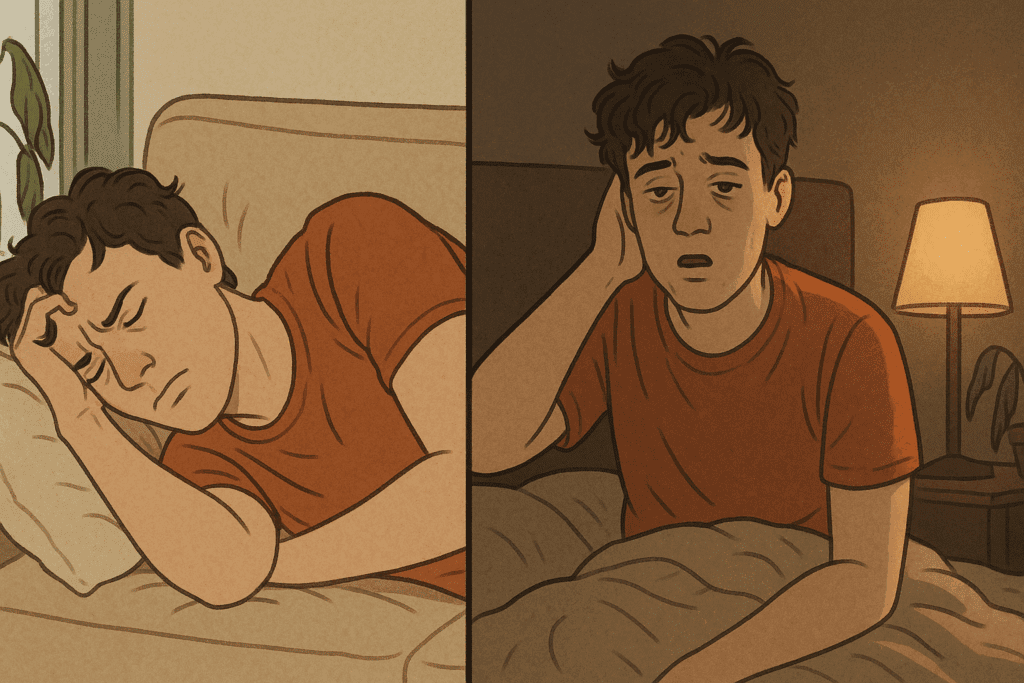
What Is Hypersomnia and How Does It Manifest?
Understanding what is hypersomnia helps demystify why excessive sleep can be so harmful. The condition typically manifests as prolonged nighttime sleep, difficulty waking up, naps that do not feel refreshing, and grogginess throughout the day. It can occur as a primary condition—idiopathic hypersomnia—or secondary to other medical conditions, such as multiple sclerosis, fibromyalgia, or Parkinson’s disease.
Symptoms may also include cognitive deficits, irritability, and feelings of guilt or frustration over reduced productivity. These individuals often report that their sleep, no matter how long, does not alleviate their fatigue. This can lead to a perpetual cycle of sleeping too much, missing obligations, and worsening mental health. Hypersomnia is more than just “sleeping in”—it is a medical condition that requires thoughtful evaluation and treatment.
Why Do I Want to Sleep All the Time? Exploring Lifestyle Factors
Sometimes, the answer to “Why do I want to sleep all the time?” lies in one’s environment or habits rather than a diagnosable condition. A sedentary lifestyle, for instance, can lead to reduced energy expenditure and a corresponding drop in alertness. Without sufficient physical activity, the body does not build up the same level of sleep pressure, which can throw off circadian rhythms and lead to more frequent naps or longer nighttime sleep.
Another overlooked factor is diet. High sugar intake and a lack of complex carbohydrates or proteins can cause blood sugar spikes and crashes, making people feel lethargic and sleepy. Dehydration is another common culprit. Even mild dehydration can lead to fatigue and reduced mental clarity. Moreover, irregular sleep schedules—such as those common among students or night-shift workers—can also disturb natural rhythms and lead to chronic tiredness.
Excessive Sleepiness Is a Sign of Deeper Imbalance
It is crucial to understand that excessive sleepiness is a sign of a deeper issue rather than the problem itself. This excessive sleepiness might be your body’s way of telling you that something fundamental is off-kilter. Whether it’s a hormone imbalance, emotional distress, or an early sign of a neurological disorder, excessive sleep should not be brushed aside as laziness or lack of discipline.
When this symptom appears suddenly, it often means that the body is reacting to a change. Perhaps a new stressor has emerged, a medication was introduced, or a physiological process has been disrupted. It’s a call for introspection and, often, a professional medical assessment. By treating the underlying issue rather than merely masking the symptoms, it becomes possible to restore energy levels and regain a sense of vitality.
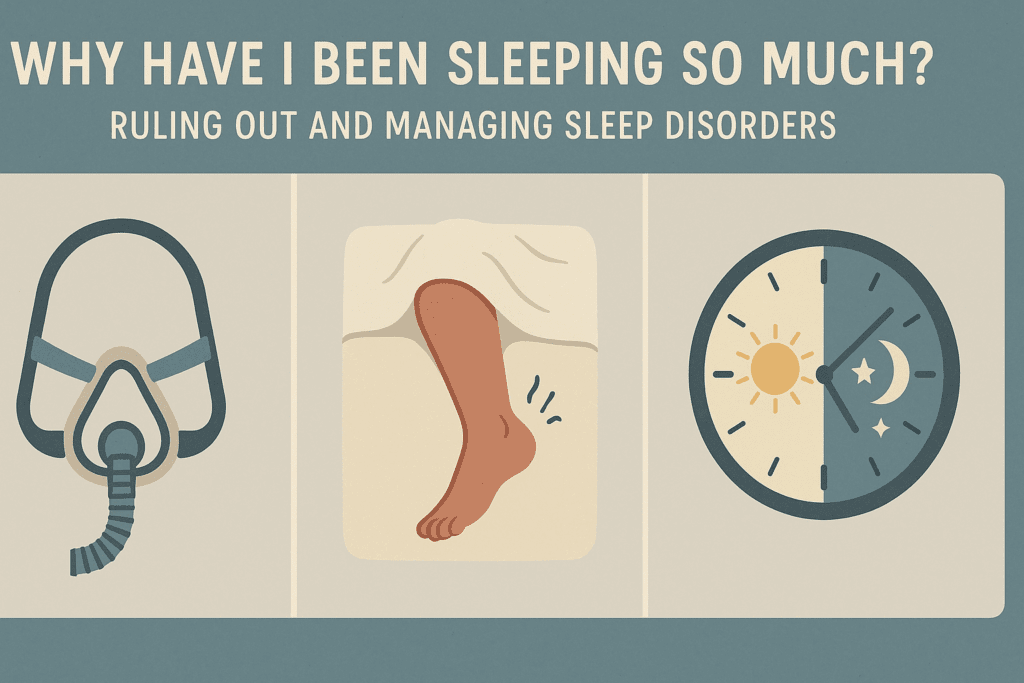
Why Have I Been Sleeping So Much? Ruling Out and Managing Sleep Disorders
If you find yourself repeatedly asking, “Why have I been sleeping so much?” and no clear cause has emerged, it may be time to explore clinical sleep disorders. Conditions like obstructive sleep apnea, restless leg syndrome, and circadian rhythm disorders often go undiagnosed for years. These disorders fragment sleep, reduce sleep quality, and lead to compensatory oversleeping that doesn’t feel refreshing.
Treatment for these conditions can vary widely. CPAP machines are commonly used for sleep apnea, while iron supplements may help restless leg syndrome. Behavioral interventions such as cognitive behavioral therapy for insomnia (CBT-I) have proven effective for individuals struggling with irregular sleep cycles. It’s also vital to establish a consistent sleep hygiene routine, which includes minimizing screen time before bed, keeping a regular schedule, and creating a restful sleep environment.
What Happens If You Sleep Too Much? Long-Term Impacts on Health
While sleeping in occasionally may feel like a luxury, regularly oversleeping can have serious health implications. What happens if you sleep too much is more than just grogginess—it can be a harbinger of poor health outcomes. Long-term excessive sleep is associated with metabolic syndrome, weakened immune function, and decreased life expectancy. In addition to physical effects, it can lead to social isolation and reduced mental health.
Memory and cognitive decline are also linked to prolonged periods of low activity and excessive sleep. Mental agility often thrives on stimulation, movement, and variety, which are minimized in a lifestyle dominated by sleep. Therefore, managing sleep is about achieving balance—too little and you risk burnout; too much and you risk stagnation. The goal should always be restorative, high-quality sleep within a healthy range.
FAQ: Exploring the Complex Causes and Implications of Sleeping Too Much
Why am I sleeping too much all of a sudden and feeling mentally foggy during the day?
Sudden increases in sleep duration paired with mental fog could stem from dysregulation of the brain’s neurotransmitter systems, particularly those involving serotonin and dopamine. These chemical messengers not only regulate mood but also control the sleep-wake cycle, meaning an imbalance can lead to both excessive sleepiness and cognitive impairment. Moreover, recent studies suggest that disruptions in the glymphatic system—a waste clearance system in the brain that functions mainly during sleep—may contribute to persistent fogginess when overactivated by excessive sleep. Hormonal shifts, such as fluctuations in cortisol or thyroid hormones, may also produce both mental sluggishness and excessive sleep. To counteract this, cognitive training exercises and morning exposure to natural sunlight can help restore sharper mental clarity while regulating circadian rhythms.
Is excessive sleepiness a sign of inflammation or immune dysfunction?
Yes, excessive sleepiness is a sign of immune system imbalance in many cases, particularly in chronic conditions like autoimmune diseases or systemic infections. Inflammation triggers the release of cytokines—chemical messengers that can directly impact the hypothalamus, which governs the body’s internal clock and sleep cycles. For instance, high levels of interleukin-6 and tumor necrosis factor-alpha have been correlated with hypersomnia symptoms and daytime somnolence in patients with inflammatory disorders. This connection helps explain why some individuals with autoimmune diseases or post-viral fatigue syndromes experience extreme daytime sleepiness even when they get adequate rest. Supporting the immune system through anti-inflammatory nutrition, stress reduction techniques, and adequate hydration can help reduce excessive sleep in these contexts.
Can you sleep too much even if your schedule feels normal?
Yes, you can sleep too much despite having a seemingly balanced daily routine. Oversleeping isn’t always linked to a hectic lifestyle or poor time management; it can occur even in individuals with structured schedules. This may indicate that the brain is not reaching deep restorative sleep stages, prompting the body to extend sleep duration in an attempt to compensate. Environmental factors such as noise pollution, temperature inconsistency, or low melatonin production due to artificial lighting can contribute to poor sleep quality. Employing sleep tracking technology or polysomnography can help determine whether extended sleep periods are truly restful or simply a reflection of disrupted sleep architecture.
Why am I sleeping too much all of a sudden despite eating well and exercising regularly?
Even if you’re adhering to a nutritious diet and a regular fitness regimen, it’s still possible to experience a sudden increase in sleep needs. In such cases, the body might be overcompensating for hidden physiological stressors, such as micronutrient depletion or hormonal fluctuations. Overtraining syndrome—common in athletes—can also result in systemic fatigue, leading to more frequent naps and falling asleep during the day. Additionally, high-intensity workouts increase adenosine levels, which is a biochemical compound that promotes sleep pressure. A functional medicine evaluation may be helpful to identify underlying imbalances such as adrenal fatigue or disrupted cortisol cycles, even in otherwise healthy individuals.
What is hypersomnia and how does it differ in adolescents versus adults?
When we define hypersomnia, it typically refers to excessive sleepiness during the day or prolonged nighttime sleep that impairs functioning. However, hypersomnia symptoms manifest differently in adolescents compared to adults. Teens naturally experience a delay in their circadian rhythm, often making them prone to sleeping all day or staying up late, which can be mistaken for hypersomnia. In adults, hypersomnia is more likely to be tied to medical or psychological conditions such as depression, fibromyalgia, or metabolic disorders. For teenagers, managing light exposure, establishing consistent bedtime routines, and reducing screen time before bed can dramatically improve sleep quality and reduce excessive sleep.
Could falling asleep randomly not narcolepsy-related still be a sign of neurological decline?
Yes, falling asleep randomly not narcolepsy-related could indicate emerging neurological issues, particularly in aging individuals. Some cases are early signs of conditions like Parkinson’s disease or mild cognitive impairment, where disruptions in dopaminergic pathways affect alertness regulation. Additionally, frequent episodes of extreme daytime sleepiness without a narcolepsy diagnosis could stem from vascular abnormalities or minor strokes that have affected the brain’s arousal systems. Cognitive testing, neurological imaging, and sleep studies can help determine whether such symptoms are benign or indicative of deeper dysfunction. Early intervention in these cases can slow progression and improve quality of life.
Why do I want to sleep all the time even though my lab tests are normal?
It’s not uncommon to feel the urge to sleep constantly even when bloodwork returns within standard reference ranges. Standard lab panels may overlook nuanced imbalances, such as borderline vitamin deficiencies (e.g., B6 or magnesium), mitochondrial dysfunction, or impaired neurotransmitter signaling. Additionally, unresolved trauma and chronic psychological stress can subtly alter the hypothalamic-pituitary-adrenal axis, leading to persistent fatigue that mimics physical exhaustion. Another often-overlooked factor is sleep misperception—where individuals believe they’re sleeping well, but objective tests show fragmented sleep with limited time in REM or deep sleep stages. In these cases, sleep quality optimization and integrative care strategies may be more beneficial than pharmaceutical interventions.
Why have I been sleeping so much since switching to remote work?
The transition to remote work has triggered an increase in excessive sleep for many, often due to disrupted boundaries between professional and personal life. Without the physical transition of commuting or defined work hours, the body’s circadian cues can weaken, increasing the likelihood of sleeping too much. Furthermore, reduced daylight exposure—common in indoor work setups—can suppress melatonin regulation, leading to erratic sleep schedules and increased sleepiness. Over time, this can result in excessive daytime sleepiness and even episodes of falling asleep during the day during virtual meetings or tasks. Incorporating daily outdoor activity and setting fixed work hours can re-establish healthier rhythms and combat oversleeping tendencies.
What happens if you sleep too much over the course of several months?
What happens if you sleep too much consistently is a cumulative weakening of several physiological systems. Long-term excessive sleep is associated with slower cognitive response times, mood instability, and weakened cardiovascular resilience. Extended periods of excessive sleep may impair glucose regulation and promote weight gain due to increased sedentary behavior. Over months, this can evolve into a feedback loop where excessive sleepiness is both the cause and effect of poor health, ultimately leading to reduced motivation, depressive symptoms, and metabolic decline. Intervening early with behavioral therapy, medical evaluation, and structured routines can reverse many of these adverse effects.
Is excessive sleepiness always linked to a medical issue, or can it be behavioral?
Excessive sleepiness is a sign of underlying medical, psychological, or behavioral causes—and often, it’s a combination of all three. Behavioral patterns such as irregular sleep-wake cycles, binge-watching late into the night, or frequent weekend oversleeping can gradually desensitize the body’s internal clock. Over time, this leads to excessive sleep that feels involuntary but is actually the result of poor sleep habits. Conversely, excessive sleepiness may reflect a psychological escape mechanism in individuals facing chronic stress, burnout, or emotional trauma. Addressing lifestyle patterns through structured behavioral changes, mindfulness, and therapy can be just as effective as medical intervention in these cases. Recognizing the layered nature of excessive sleep enables a more comprehensive, personalized approach to healing.
Conclusion: Reclaiming Your Energy and Addressing Sudden Fatigue Holistically
When faced with the question, “Why am I sleeping too much all of a sudden?” it’s important to treat it not as an isolated issue, but as a symptom demanding attention. The sudden onset of fatigue may be your body’s way of signaling distress—physically, mentally, or emotionally. From underlying health disorders to mental health challenges and lifestyle imbalances, the root causes are varied but often interconnected. Recognizing that excessive daytime sleepiness, hypersomnia symptoms, and sleeping all day are not merely lifestyle quirks but potential medical concerns is the first step toward resolution.
By understanding what is hypersomnia, exploring why excessive sleepiness is a sign of imbalance, and asking deeper questions such as “Why do I want to sleep all the time?” or “Why have I been sleeping so much?” you begin to unpack the complex web of sleep health. With proper diagnosis, improved sleep hygiene, and targeted medical or psychological interventions, it is possible to restore a more vibrant, awake, and fully engaged version of yourself. Sleep should be a source of restoration, not a retreat from life, and reclaiming your energy begins with listening to what your body is truly trying to say.


